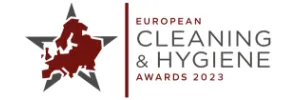News & Insights
Read the latest news from us and our clients across the globe

Posted on 28 January 2014 by adtrak.admin
End of waste regulations – the plastics perspective
Peter Davis OBE, Director-General of the British Plastics Federation (BPF), reviews priorities for the plastics industry
Peter will elaborate upon these themes, alongside fellow keynote speakers from the metals, paper, organics and glass recycling sectors, at the End of Waste Conference on 30 January 2014.
Plastic is not currently covered by the end of waste regulations, which sets out when certain waste stops being classified as waste, and gains the status of a product or secondary raw material. However, technical documents have been submitted to the European Union*, and it is one of the sectors currently under consideration. On End of Waste criteria, there are two main issues currently pending for the plastics industry: 2% limit for non-plastics contamination; and content of substances of very high concern (SVHC) and hazardous waste input.
The BPF supports policies which lead to increased resource efficiency, reduced carbon footprint and diversion from landfill. Our immediate focus is the increased plastic recycling targets the Government set for 2013-2017, rising from 32% in 2012 to 57% in 2017. Whilst recycling rates for plastic packaging in the UK are among the best in Europe and the world, we have expressed concerns over the great difficulty in achieving the Government’s targets in this timescale.
To achieve these targets there must be full support of all the stakeholders within the plastics packaging supply chain, and an adequate strategy in place. This includes substantial investment in UK waste recovery facilities, discouraging the exports of waste, utilising technology and developing a range of markets for recycled plastic materials as an alternative to virgin products. Also essential to quality and quantity is central direction to local authorities on what to collect, sort and recycle rather than the kaleidoscope of methods we currently have, which are costly and inefficient.
One of the steps we have taken is to propose reform of the packaging waste recovery notes (PRN) system. The current system has created commercial incentives that have favoured the exporting of plastic over UK reprocessing and recycling, and a by-product of this has been a lowering of quality in terms of sorted and separated material waste streams. We would like to see the system adapted so that it is less advantageous to export plastic waste, and the creation of more UK recycling facilities.
It is hoped that the proposed Code of Practice for materials recycling facilities, and effective management of the Trans Frontier Shipments (TFS) regulations by the Environment Agency, will help ensure that the quality of sorted waste for recycling will improve dramatically and prevent the export of illegal waste exports which only serves to undermine consumer confidence in recycling.
Reducing plastics waste landfill is another priority for the BPF. The plastics industry realises it can’t do this on its own and has been engaging with a range of organisations including local authorities, commercial operations and materials recycling facilities.
With UK landfill capacity filling up quickly, the BPF is strongly in favour of a big increase in landfill taxes to £200 per tonne by 2020. This would ensure that recyclable waste from landfill is diverted and transformed into valuable resources.
Used plastic can be recycled up to six times, but we realise it’s not economically or practically possible to recycle everything. When recycling is not an option, the plastics industry think the next best alternative is to have their energy recovered through Energy from Waste (EfW) incineration and provide much needed home grown power.
Peter Davis will elaborate upon these themes, alongside fellow keynote speakers from the metals, paper, organics and glass recycling sectors, at the End of Waste Conference on 30 January 2014. Conference tickets are £195. To register, please visit www.regonline.co.uk/EndofWaste2014.
* References
EU, (2012) – Waste Framework Directive – End of Waste. at: http://ec.europa.eu/environment/waste/framework/end_of_waste.htm
SUSPROC, (2013) – End-of-waste criteria – general methodology and analysis for waste stream selection. Available at: http://susproc.jrc.ec.europa.eu/activities/waste/index.html
Published in Material Handling World – January 2014
Experts in Public Relations Services & Communications Management
Our ServicesGenuine industry specialists in cleaning and hygiene, environmental and recycling, and facilities management
Our Sectors












